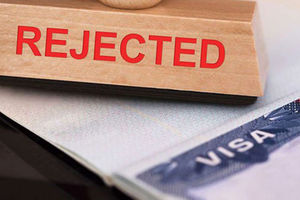
A voter goes through the voter registration process at Roysambu in Nairobi on February 6, 2022.
Kenyans living in the diaspora have suffered a blow after the High Court in Nairobi rejected a petition to allow them use other legal modes of identification, apart from the Kenyan passport, to register as voters in the forthcoming presidential elections.
In a petition filed by Busia Senator Okiya Omtatah, the court had been called upon to declare that Regulation 37 of the Elections (Registration of Voters) Regulations, 2012 was unconstitutional for limiting the registration of diaspora voters to those with valid Kenyan passports only.
The contested rule, titled eligibility to vote, provides that “a Kenya citizen residing outside Kenya shall apply registration as a voter upon production of a valid Kenyan Passport. Citizens residing in countries within the East African Community may present an identity card”.
Mr Omtatah argued that the regulation was curtailing rights of Kenyans living abroad, who for one reason or the other, have no valid passports, but have other legal modes of identification. He argued that it was unconstitutional for the electoral commission to prohibit the use of national identification cards for diaspora voter registration.
However, Justice Lawrence Mugambi dismissed the petition and ruled that the contested regulation was not entrenching discrimination, as argued by the petitioner.
“It is not correct to argue that it is discriminating against Kenyans living at home and those in diaspora. In my view, that differentiation is based on reasonable grounds considering that Kenyans living lawfully in diaspora must have, as condition precedent, a passport and not an identity card as with Kenyans residing at home,” said the judge.
“Requiring them to provide a passport is thus not discriminative as that is a legal document that they would naturally and legally be expected to have as a condition of lawfully residing outside Kenya”.
Renounced their citizenship
Given that it is not conceivable to expect a Kenyan lawfully residing in diaspora to do so without a valid passport, the judge explained that such a limitation is based on reasonable grounds.
The judge said the regulation also obviates the possibility of having persons who might have clandestinely renounced their citizenship from participating in voting or vying for public positions in Kenya.
“I disagree with the Petitioner’s contention that this regulation is an unreasonable limitation of Article 38 (3) or 83 (3) of the Constitution,” said the judge.
He added that the issue had been litigated in another case and determined. Thus, he said Mr Omtatah was reintroducing the same in separate proceedings.
“It means therefore the finding of the judge on the Constitutionality of Regulation 37 of the Elections (Registration of Voters) Regulations, 2012 cannot be impeached via this petition considering that this is a court of coordinate jurisdiction,” said Justice Mugambi.
The court also held that Article 24 of the Constitution allows a right or fundamental freedom in the Bill of rights to be limited if there are reasonable and justifiable grounds.
Mr Omtatah had argued that the diaspora community needed to be accorded an opportunity to register as voters using other legal modes of identification.
He stated that the regulation was also creating confusion and contradicting other rules, which allow the use of national identity cards for voter registration without any restriction.
Valid Kenyan passport
It was his case that allowing the contested regulation to continue operating amounted to denying eligible Kenyan citizens in the diaspora the right to vote in an election.
The case was opposed by the Attorney-General and the Independent Electoral and Boundaries Commission (IEBC), who urged the court to dismiss the petition.
The Attorney General stated the right to vote was not absolute and the same could be subjected to limitations as may be provided for in law.
“There is no justification in the petition, indicating how one could be living in the diaspora without a valid Kenyan passport, as that would be an illegality. The petition is based on an apprehension rather than a fact,” said the AG.
For its part, IEBC through Chrispine Owiye stated that the contested regulation does not violate the Constitution nor present an unreasonable limitation under Article 38(3) and 24(2) of the Constitution.
He stressed that a valid Kenyan passport which contains an expiry date is the only way the electoral commission could ascertain a person’s citizenship while residing outside the Country so as to safeguard the credibility of the voter registration process.
Considering this, he states that the Petitioner has failed to demonstrate how the IEBC exercised its powers contrary to the Constitution or the legislation.






